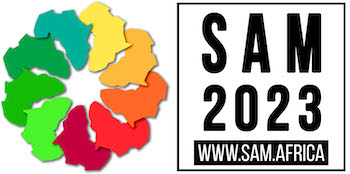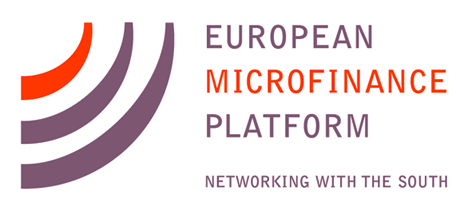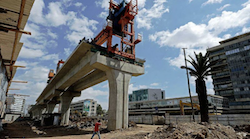In the April edition of the Asian Bond Monitor (ABM), a publication that reviews East Asian local currency bond markets, the Asian Development Bank (ADB), a multilateral development financial institution, claims securitisation of assets has the potential to support the region’s microfinance industry and its numerous microfinance institutions (MFI’s). Since the financial crisis, which hit the region and it’s ‘tiger’ economies in 1997/98, the securitisation of assets has experienced relatively strong growth; bond markets in the region increased by 32.4% in 2006. On the back of this trend the ADB has launched the new initiative “to encourage use of securitisation.”
Search Results for: microfinance financial crisis
Microfinance Housing: A Profitable Way to Avert Further Urban Crisis
Close to one billion people are slum dwellers (approximately one-sixth the world population), a number, according to the UN Human Settlements Program (UN-HABITAT) that will increase almost 200% by 2030. This provides an enormous market for housing microloans—a huge source of untapped profits—that could alleviate a future crisis by helping with “slum upgrades and slum prevention.” While state-subsidized housing may also be a solution, immediate massive investment in urban shelter and services should be of primary concern and will require the leadership of the private microfinance sector.
Serving the vast pool of housing microloan borrowers are numerous industry players including “urban developers, regulated financial institutions, government agencies, credit cooperatives, NGOs with an urban poverty focus, and MFIs” who provide the housing loan services.
Though conventional mortgages often remain unattainable for the poor, the merging of such traditional housing finance and microenterprise has enabled poor families to improve their homes by building in stages. About 70% of investment in microfinance housing has in fact been utilized in such “incremental building.” An UN-HABITAT report concludes that smaller short-term loans (microloans less than $5000 for one to eight years) prove more feasible to city dwellers who cannot afford long-term loans “favored by mortgage markets.” Housing Improvement Loan Products designed by Peruvian MFI Mibanco, for instance, allows households to finance home improvement projects instead of completely new construction. Besides small shorter-term loans, housing microloan products also typically have flexible repayment systems and require an established trust between borrower and lender instead of houses for collateral. Interest rates, just lower than microenterprise rates, are also sometimes used. These features have contributed to high repayment rates, enabling MFIs and other housing organizations, to achieve a profit and possibly avert the looming crisis of global slums.
Additional Resources
1) “World Faces Prospect of Teeming Mega-Slums.”
2) Accion InSight #4: “Building the Homes of the Poor—One Brick at a Time, Housing Improvement Lending at Mibanco.”
3) “Helping to Improve Donor Effectiveness in Microfinance—The Impact of Interest Rate Ceilings on Microfinance.”
4) “A New Approach to Low-Income Housing Finance.”
5) “Helping to Improve Donor Effectiveness in Microfinance—Housing Microfinance.”
6) “Developing Housing Microfinance Products in Latin America.”
SPECIAL REPORT: Inclusive Finance in Africa Amid the Current Food and Climate Crises, in Anticipation of SAM 2023 in West Africa
 In anticipation of SAM 2023 (Semaine Africaine de la Microfinance 2023), its organisers convened a panel discussion on October 19 as part of Accion’s Financial Inclusion Week. The panel illustrates the commitment of SAM’s organisers to nurture ongoing dialogue on the issues faced by the inclusive finance sector. The objective was to share and question the strategies being used to address issues faced by the agricultural sector, which remains one of the least financed due to investors’ perception of it as high-risk.
In anticipation of SAM 2023 (Semaine Africaine de la Microfinance 2023), its organisers convened a panel discussion on October 19 as part of Accion’s Financial Inclusion Week. The panel illustrates the commitment of SAM’s organisers to nurture ongoing dialogue on the issues faced by the inclusive finance sector. The objective was to share and question the strategies being used to address issues faced by the agricultural sector, which remains one of the least financed due to investors’ perception of it as high-risk.
Climate change coupled with social and political turmoil is negatively impacting agricultural value chains in particular and global food security in general. The conflict between Ukraine and Russia is lowering food security and agricultural production in many developing countries, as the warring nations are two of the largest exporters of key agricultural commodities such as wheat, corn, sunflower oil and fertiliser. The Horn of Africa could suffer the worst effects of the war because of its ongoing food crisis following three years of severe drought, the COVID-19 pandemic and protracted local conflicts. Market volatility and rises in energy costs, input costs, interest rates and perceived risk are expected to lead to higher costs of borrowing, credit crunches, and unmet working capital and liquidity needs.
Addressing these issues at the Financial Inclusion Week panel were:
– Jacques Afetor, Executive Director of Assilassimé Solidarité, a Togolese MFI supporting
MICROCAPITAL BRIEF: IDB Kicks Off $15m Program to Promote MSMEs in Belize with Eye to Climate, COVID-19 and Women

The Inter-American Development Bank (IDB), a US-based multilateral institution, recently loaned USD 15 million to Belize to provide “production-oriented capital” to 200 micro-, small and medium-sized enterprises (MSMEs). The funding is intended to assist MSMEs, particularly those led by women, in
MICROCAPITAL BRIEF: Amen Bank of Tunisia Borrows $17m from Sanad for On-lending to MSMEs Adjusting to COVID-19 Pandemic
Tunisia’s Amen Bank recently accepted a senior loan of EUR 14 million (USD 16.7 million) from the Luxembourg-domiciled Sanad Fund for MSME. Via its 160 branches, Amen Bank is to on-lend the funds to
MICROCAPITAL BRIEF: ATL Secures $12m from Sanad for SME Leasing in Tunisia During COVID-19 Pandemic
Tunisia-based Arab Tunisian Lease (ATL) recently secured a senior loan of EUR 10 million (USD 12 million) from Sanad Fund for MSME, a Luxembourg-domiciled investor in lenders to micro-, small and medium-sized enterprises (MSMEs), for
MICROCAPITAL BRIEF: Google, Inter-American Development Bank (IDB) Invest $12m in Locfund Next to Support Small Businesses in Latin America, Caribbean in Responding to COVID-19
Locfund Next, a debt fund managed by BIM Asset Management, recently received an investment of USD 8 million from US-based technology firm Google as part of USD 200 million Google has committed to support organizations that
SPECIAL REPORT: During Pandemic, VSLAs Support Members Struggling with Barriers to Income, Education, Gender-based Violence, Lack of PPE
During  a European Microfinance Week session on village savings and loan associations (VSLAs), speakers from several affiliates of Switzerland-based CARE International described their organizations’ responses to the COVID-19 pandemic. As the pandemic set in, they surveyed members of VSLAs, which commonly include 30 women, in various formats to learn how they were adjusting to the pandemic and what support they need.
a European Microfinance Week session on village savings and loan associations (VSLAs), speakers from several affiliates of Switzerland-based CARE International described their organizations’ responses to the COVID-19 pandemic. As the pandemic set in, they surveyed members of VSLAs, which commonly include 30 women, in various formats to learn how they were adjusting to the pandemic and what support they need.
Maryam Garba Usman of CARE Nigeria described her organization’s survey of 100 VSLAs, largely via an interactive voice response telephone system. The team also used a mobile app to distribute information on COVID-19 and a range of gender-related issues. Most groups continued to meet in person, incorporating social distancing. In addition to accessing financial services, VSLA members addressed problems such as gender-based violence, child marriage, interruptions to children’s education and
MICROCAPITAL BRIEF: IDB Loans $750m to BNDES to Support MSMEs in Brazil During COVID-19 Pandemic
The Inter-American Development Bank (IDB), whose membership comprises 48 nations, recently loaned USD 750 million to Banco Nacional de Desenvolvimento Econômico e Social (BNDES), the Brazilian government’s development bank, to support micro-, small and medium-sized enterprises (MSMEs) in Brazil that have seen significant drops in revenue during the COVID-19 pandemic. The loan is expected to enable
MICROCAPITAL BRIEF: USAID Gives $2.5m for Design of Kiva Invest in Women Fund (K-IWF) from Women’s Global Development and Prosperity (W-GDP) Initiative
The US Agency for International Development (AID) recently gave USD 2.5 million from the Women’s Global Development and Prosperity (W-GDP) Initiative to US-based nonprofit Kiva to develop the Kiva Invest in Women Fund (K-IWF). Kiva plans for this investment vehicle to mobilize USD 100 million for women entrepreneurs as part of Kiva Capital, the NGOs “asset management subsidiary offering impact-first investment vehicles.” As groundwork for the fund, Kiva Capital will use the money to:
MICROCAPITAL BRIEF: FinDev Canada, FMO Loan $72m to Latin American Agribusiness Development (LAAD) for SME Finance
Development finance institutions (DFIs) FinDev Canada and the Netherlands Development Finance Company, which also is known by its Dutch acronym FMO, recently provided a syndicated loan of USD 72 million to the US-based, for-profit Latin American Agribusiness Development Corporation (LAAD). LAAD will use the funds to finance term loans and revolving lines of credit to small and medium-sized enterprises (SMEs) involved in agriculture in Latin America and the Caribbean, with the goal of spurring market development and job growth in rural communities. LAAD requires that each of its loans is used according to an
MICROCAPITAL BRIEF: ADA, Grameen Crédit Agricole Foundation Respond to COVID-19 with Information Sharing, Funding, Partnerships
Luxembourg-based NGOs ADA (Appui au Développement Autonome) and the Grameen Crédit Agricole (GCA) Foundation have launched a range of resources in response to the COVID-19 pandemic including the following:
SPECIAL REPORT: One Size Does Not Fit All – Restructuring for Uncertain Times, from Verdant Capital
This sponsored content was written by Edmund Higenbottam and Patrick Ball, who serve, respectively, as the Managing Director and a Director of Verdant Capital. Verdant Capital is a leading specialist financial advisory firm that operates across Africa.
A  combination of factors is challenging the economic sustainability of financial institutions and other businesses large and small across Africa. Globally, the COVID-19 crisis and associated lockdowns have had the effect of “calling the end of a long bull market” that has run since the credit crisis of 2008. In most African markets, however, the bull market had already ended some years before the pandemic. Instead, in Africa, the pandemic has compounded previously existing difficulties, such as weaker commodity prices, sovereign credit challenges, volatile exchange rates and uncertain public policy regimes. Despite some differences, there are many commonalities among the issues facing traditional banks, microfinance institutions and operating companies. From an investment
combination of factors is challenging the economic sustainability of financial institutions and other businesses large and small across Africa. Globally, the COVID-19 crisis and associated lockdowns have had the effect of “calling the end of a long bull market” that has run since the credit crisis of 2008. In most African markets, however, the bull market had already ended some years before the pandemic. Instead, in Africa, the pandemic has compounded previously existing difficulties, such as weaker commodity prices, sovereign credit challenges, volatile exchange rates and uncertain public policy regimes. Despite some differences, there are many commonalities among the issues facing traditional banks, microfinance institutions and operating companies. From an investment
MICROCAPITAL BRIEF: Pakistan Launches Electronic Registry of Movable Assets, with Support from IFC
The Securities and Exchange Commission of Pakistan recently created an electronic registry to encourage the country’s banks, microfinance institutions (MFIs) and leasing companies to accept moveable assets as collateral for loans. The collateral registry will help these institutions “to register rights in moveable assets in offering credit to people, as well as micro-, small and medium-sized enterprises” (MSMEs). Moveable assets may include
MICROCAPITAL BRIEF: SafeBoda Uganda, UNCDF Launch E-commerce Platform for Market Vendors Looking to Maintain Operations During Pandemic
SafeBoda, a Uganda-based owner of an app for hailing motorcycle rides in three countries, and the UN Capital Development Fund (UNCDF), a UN agency that supports small businesses in developing countries, recently partnered to launch an e-commerce platform. This is a response to the
MICROCAPITAL BRIEF: Sierra Leone Launching National Digital Identity Platform in Partnership with Kiva, Rippleworks, UNCDF, UNDP
The government of Sierra Leone recently launched “Africa’s first blockchain and decentralized identity implementation” in partnership with Kiva, a US-based nonprofit microfinance fundraiser, as well as the UN Capital Development Fund (UNCDF) and the UN Development Programme (UNDP). The national digital identity platform is powered by
MICROCAPITAL BRIEF: CGAP Accepting 2017 Photo Contest Entries Through September 29
CGAP (the Consultative Group to Assist the Poor), a US-based, nonprofit policy and research center that aims to facilitate the expansion of financial access, is seeking submissions of original photographs for its annual competition, which aims to highlight the positive effects of microfinance.
MICROCAPITAL BRIEF: Opportunity International, ReGrow West Africa, Tata Communications Make Commitments at 11th Clinton Global Initiative (CGI) Annual Meeting
At the recent eleventh annual meeting of the Clinton Global Initiative (CGI), an initiative of the US-based Clinton Foundation, 123 new commitments to “alleviate poverty, create a cleaner environment and increase access to health care and education” were announced, including [1]:
